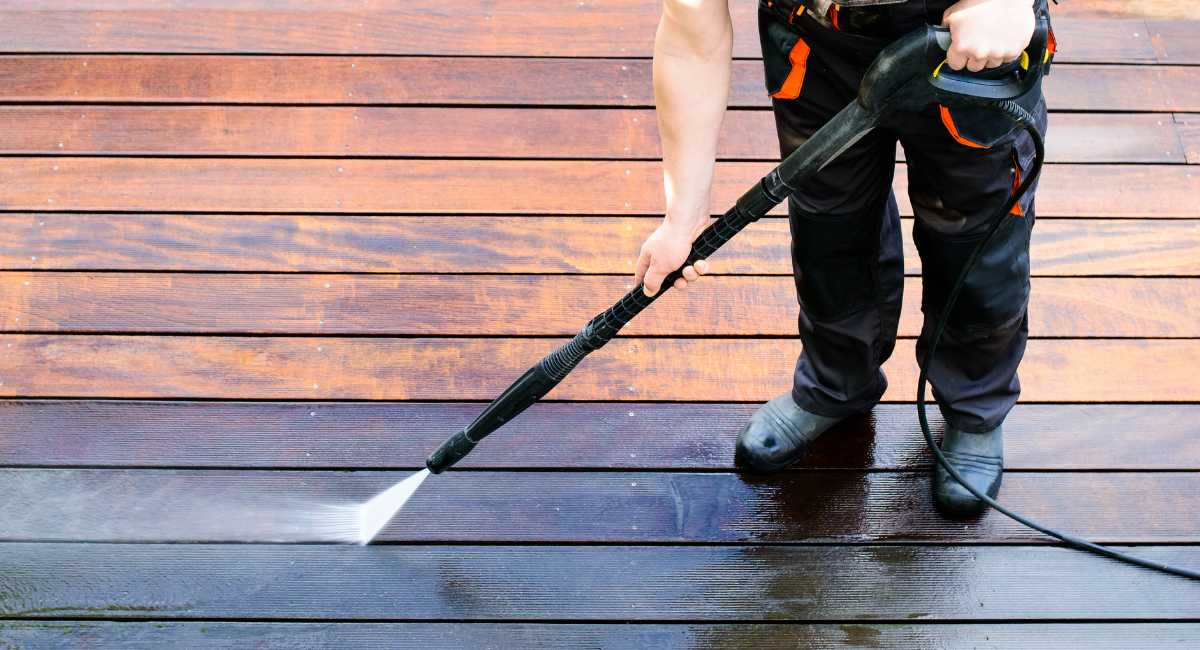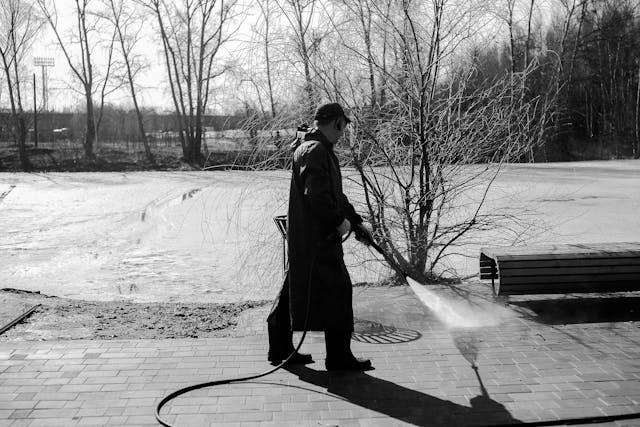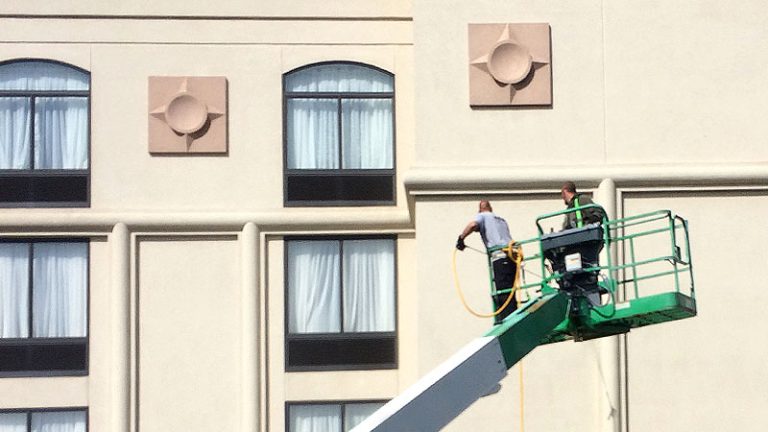
When it comes to hiring a power washing contractor, many people focus on cost, convenience, or availability. But there’s one factor that can make or break your results: specialized training or certification in surface-specific cleaning techniques.
Not all surfaces can handle the same amount of pressure, chemicals, or cleaning method. Without proper training, a contractor might unintentionally scar wood, damage paint, crack concrete, or destroy roofing materials. 😬
That’s why hiring someone who’s certified or trained in handling specific surfaces — like stucco, asphalt shingles, vinyl siding, or wood decks — is a smart investment. In this article, we’ll explore what certifications to look for, why they matter, and how they can save you from costly damage and poor results.
🧠 Why Surface-Specific Training Matters
Power washing might seem simple — just spray and rinse, right? But there’s actually a science behind applying the right PSI (pressure per square inch), nozzle angle, detergent, and dwell time for each material.
The wrong method can lead to:
- Surface etching or gouging
- Water intrusion behind siding
- Wood fiber damage
- Loosened mortar between bricks
- Shingle granule loss
- Paint stripping or fading
🎯 A trained professional knows how to adjust technique to match the surface, weather conditions, and contaminant type.
📜 Common Certifications in the Power Washing Industry
While the power washing industry isn’t federally regulated, several respected organizations offer training and certifications:
1. PWNA (Power Washers of North America)
One of the most widely recognized associations. PWNA offers certifications in:
- House washing
- Roof cleaning
- Wood restoration
- Flatwork cleaning (concrete, driveways)
- Environmental safety
✅ Look for contractors who mention PWNA membership or certification on their website or service quote.
2. UAMCC (United Association of Mobile Contract Cleaners)
Another reputable organization that offers:
- Industry-standard training
- Insurance and environmental best practices
- Surface-specific safety training
📚 UAMCC-trained pros typically understand how to handle pressure, temperature, and chemicals on delicate materials.
3. OSHA Training (General Safety)
While not pressure-washing specific, contractors who have completed OSHA 10 or 30-hour training tend to prioritize workplace safety and risk management — great for roof or ladder work. 🧗
4. Manufacturer Certifications
Some companies (e.g., SoftWash Systems, Roof-A-Cide) certify power washing pros in the proper use of their branded products or methods.
If a contractor claims to use a specialty method (like soft washing), ask where they trained. Reputable providers will show proof of education.
Browse Amazon Here For Top Power Washers And Accessories
🧱 Examples of Surfaces That Require Special Handling
🪵 Wood Decks & Fencing
- Use low PSI (less than 1,000)
- Wide fan tip nozzle to avoid splintering
- May require pre-treatment with wood-safe detergent
❌ Too much pressure will strip fibers and leave grooves
🧱 Brick and Mortar
- Medium pressure with appropriate cleaner (not bleach)
- Avoid direct nozzle contact with joints
❌ Old mortar can crumble if hit with high-pressure water
🪟 Vinyl or Aluminum Siding
- Often cleaned with a soft wash method
- Mild chemicals and low pressure
- No water intrusion behind seams
❌ High pressure can dislodge siding or cause interior leaks
🏠 Roofs (Asphalt, Tile, or Slate)
- Soft washing only — zero direct pressure
- Specialized algaecides for mold/mildew
- Avoid walking on the roof unless trained
❌ Pressure washing can void roof warranties or cause structural damage
🧼 Painted Surfaces
- Test in a small area first
- Use wide-angle nozzle and low pressure
- Pre-soak to reduce adhesion of dirt
❌ Untrained washers can peel or fade paint unexpectedly
🕵️♂️ Questions to Ask Your Contractor
When evaluating a power washing company, ask:
- “Are you certified by any industry organization like PWNA or UAMCC?”
- “Do you have specific training for roof washing or deck restoration?”
- “Can you show examples of work on [insert your surface type]?”
- “What technique will you use to clean my [roof/siding/brick/etc.]?”
- “Are your cleaning agents surface-safe and biodegradable?” 🌿
A pro should answer confidently and clearly — not get defensive or vague.
🚩 Red Flags to Watch For
Be cautious if a contractor:
- Uses one approach for every surface
- Won’t specify PSI or method
- Doesn’t know the difference between soft washing and pressure washing
- Claims “pressure is pressure” — that’s a myth
- Doesn’t carry surface-specific insurance coverage
🎯 The more they know about what not to do, the safer your property will be.
🧽 Why This Matters More for Historic or High-Value Properties
If your home has:
- Delicate architectural elements
- Historic brickwork or masonry
- Custom finishes or trim
- Rooftop solar panels or specialty coatings
…then it’s critical to hire someone who knows how to treat those surfaces properly.
Restoration contractors often use soft-wash systems, biodegradable cleaners, and ultra-low-pressure techniques designed for longevity — not just short-term shine.
🤝 Long-Term Benefits of Hiring Trained Professionals
- 🧼 Cleaner results: No streaks, residue, or uneven lines
- 🏠 Preserved surfaces: Avoid premature wear and expensive repairs
- 🧠 Peace of mind: You’ll know your home is in expert hands
- 💧 Environmental safety: Responsible runoff and chemical use
- 📅 Consistent maintenance: Many certified pros offer seasonal plans
🏁 Final Thoughts
Hiring a power washer that’s certified or trained in surface-specific techniques isn’t just a nice-to-have — it’s a must-have if you care about protecting your investment.
From roofs to decks to delicate brickwork, each surface has its own needs. A true professional understands that and tailors their approach accordingly. 📚🧽
Ask questions. Request credentials. And don’t settle for a “one-size-fits-all” service. Your home deserves better — and a trained power washing pro can deliver exactly that.






